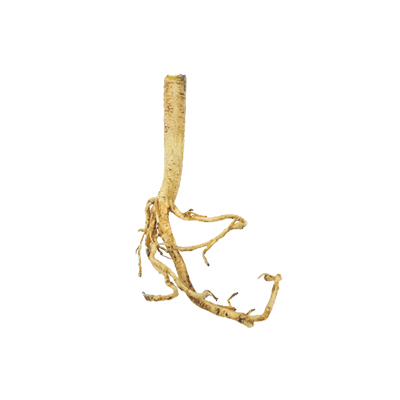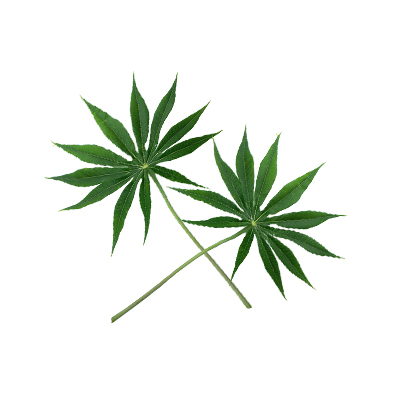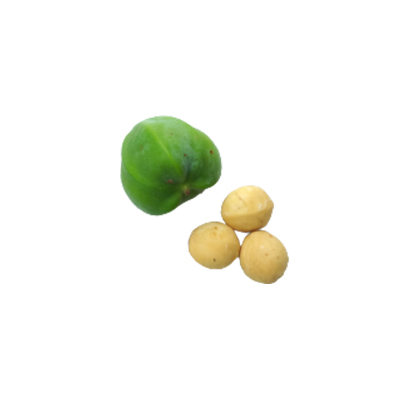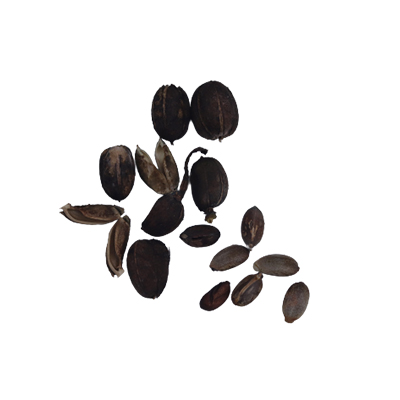Coral Bush
Jatropha multifida L.
Euphorbiaceae
Location in our garden
Principal



Synonym
Adenoropium multifidum (L.) Pohl
Jatropha janipha Blanco
Manihot multifida (L.) Crantz
Habitus
Shrubs. An evergreen or semi-deciduous, slightly succulent shrub or a tree with a loose, spreading crown; it can grow up to 6 m tall.
Part Used
Leaves
Seeds
Latex
Roots
Growing Requirements
Full Sunshine
Habitat
Roadside
Shrublands
Terrestrial
Overview
J. multifida is native to tropical America from Mexico to Paraguay, within Malesia it is cultivated at least in Peninsular Malaysia, Java, the Moluccas and the Philippinesit. It was introduced as an ornamental into the Old World tropics long ago and is often grown as a hedge. The red inflorescence is in great demand by florists as it makes beautiful red corsages. The plant is harvested from the wild for local use as a medicine and source of oil.
Vernacular Names
Malako farang (Thai), Dau me do (Vietnamese), Mana (Philippines), Lohong khvang kraham (Cambodian), Arbre corail (French), Xi lie shan hu you tong (Chinese), Yatorofa muruchifida (Japanese), Korallenbaum (German)
Agroecology
Coral bush is a plant of semi-arid regions in the tropical lowlands, though it can be grown in moist regions so long as there is excellent drainage. Prefers a position in full sun, but also succeeds in partial shade. Succeeds in most well-drained soils. Established plants are somewhat tolerant of drought. Tolerant of maritime exposure.
Morphology
- Roots - tuberous.
- Leaves - peltate, broadly ovate-orbicular, 15-35 cm in diameter, palmatipartite with (9-)11(-12) segments, segments simple to deeply pinnatipartite, petiole 10-25(-35) cm long.
- Flowers - Male flowers with broadly ovate calyx lobes, about 1 mm long, petals free, about 5 mm long, scarlet, stamens 8, filaments free; female flowers with petals up to 9 mm long, stigmas capitate, bilobed. Inflorescence tightly corymb-shaped, peduncle up to 23 cm long.
- Fruits - tardily dehiscent to subdrupaceous, broadly obovoid, about 3 cm long, 3-lobed with keeled lobes, yellow when mature.
- Seeds - 1.7-2 cm long, buff, mottled brownish, with a small caruncle.
Cultivation
Propagated by seeds and cuttings.
Chemical Constituents
Alkaloids, tannins, glycosides, saponins, flavonoids, phenols, apigenin flavones, acacetin, luteolin, phenolic acids such as vanillic, siring, p-OH-benzoic acid, melilotic, cis- and trans-ferulic, p-coumaric and hydrochloric acid, proanthocyanidins and glycoflavones.
Traditional Medicinal Uses
- The seed oil is sometimes used as a cathartic, although it may cause strong irritation and even poisoning. The oil is applied both internally and externally as an abortifacient.
- Seeds are used fresh as a purgative and emetic. A very powerful purgative, their use has been almost abandoned in traditional medicine in Mexico, although they are officinal in the Mexican Pharmacopoeia.
- The latex is used externally in the treatment of infected wounds, ulcers, skin infections and scabies. In Indonesia one of its local names is 'yodium' ('iodine'), which reflects the popular use as a wound-healing remedy.
- In Indo-China, dried roots are given as a decoction against indigestion and colic; they are also prescribed as a tonic to treat orchitis and oedemas.
- The leaves are used as a purgative, and in the treatment of dysentery and scabies.
- In Nigeria, leaf juice extract used for treatment of thrush. Leaves and leaf sap used as purgative. Leaves and fruits are boiled, used internally or externally in a bath for fever. Poultice of root bark and roots used as wound dressing. Roots, taken internally, for worms and gonorrhea. Latex used for wounds and skin infections.
Part Used
Reference Sources
- Fern, Ken. Useful Tropical Plants. (2021). Jatropha multifida. https://tropical.theferns.info/viewtropical.php?id=Jatropha+multifida. 19-10-21
- Plant Resources of South East Asia. Jatropha multifida. https://uses.plantnet-project.org/en/Jatropha_multifida_(PROSEA). 19-10-21
- StuartXchange. Philippines Medicinal Plant. Jatropha multifida. http://www.stuartxchange.org/Mana.html. 19-10-21



